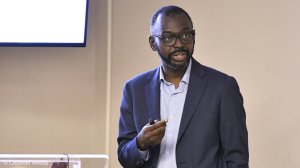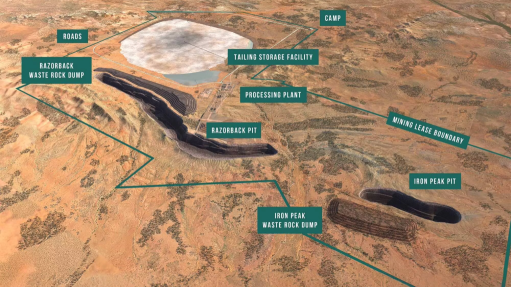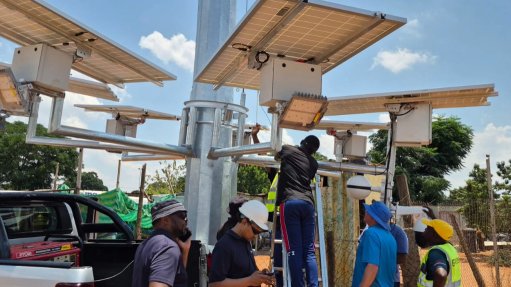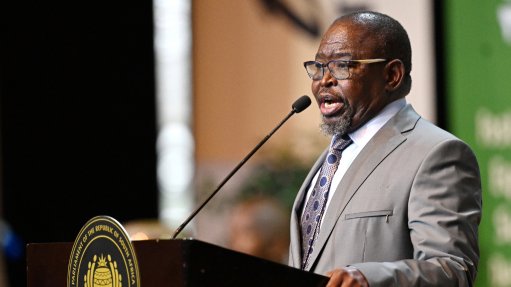Economists ponder fiscal consolidation, tax increases ahead of Budget speech

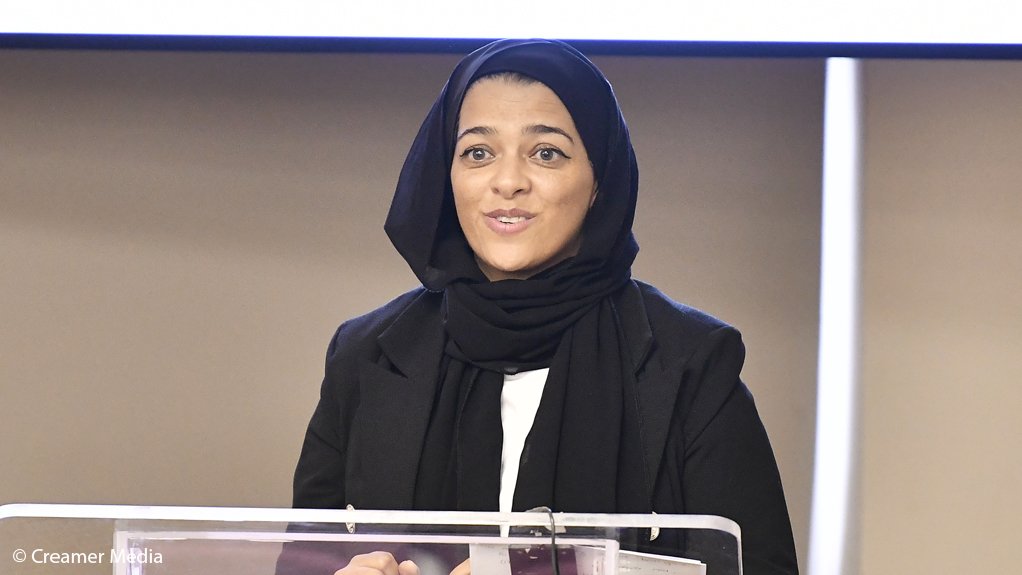
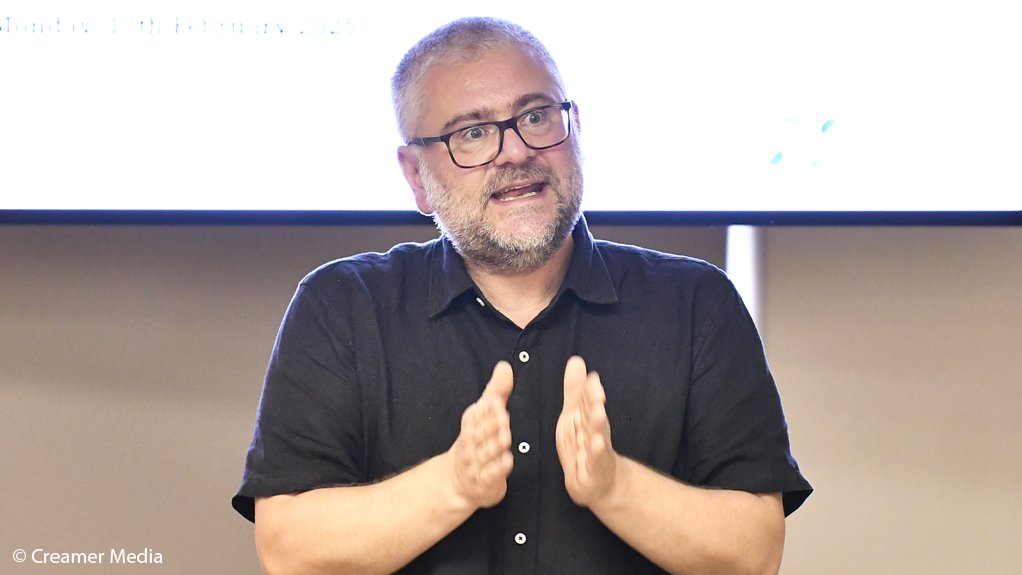
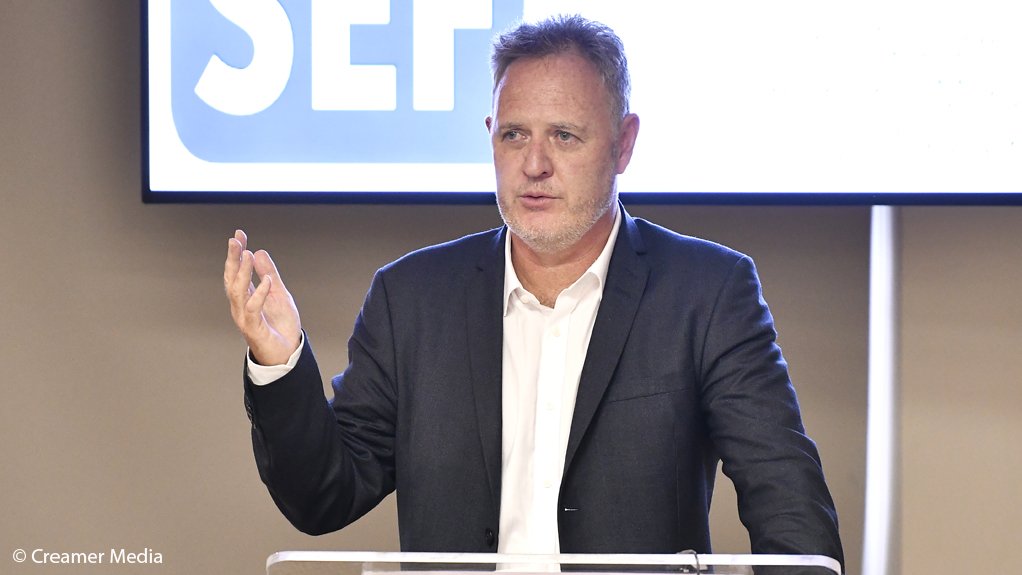
IMF senior resident representative Tidiane Kinda outlines the IMF’s outlook for South Africa and risks to this, while and Wits adjunct professor Michael Sachs ponders the implications of the fiscal policy trajectory.
Wits School of Economics and Finance lecturer Fatima Bhoola
Photo by Creamer Media's Donna Slater
Wits adjunct professor Michael Sachs
Photo by Creamer Media's Donna Slater
Wits School of Economics and Finance senior lecturer Dr Kenneth Creamer
Photo by Creamer Media's Donna Slater
Ahead of Finance Minister Enoch Godongwana's 2025 Budget speech, a panel of economists deliberated on the potential outcomes of the Budget, including the impact of fiscal consolidation and tax increases, during a 2025 Budget Speech Seminar, hosted by the Wits School of Economics and Finance.
Citing the 2024 International Monetary Fund (IMF) South Africa Article IV Consultation, IMF senior resident representative Tidiane Kinda posited that safeguarding fiscal sustainability was crucial, with more ambitious fiscal consolidation required to turn the trajectory of the country’s high debt, now at about 75% of GDP, strongly downward.
He pointed out that high interest payments were limiting priority spending on education, healthcare and infrastructure, among other priority areas.
The IMF is therefore advising a fiscal consolidation of 1% of GDP for three years.
Secondly, it is advising a debt-based fiscal anchor to help achieve this consolidation.
Kinda outlined three main reforms that could be pursued to enable this. Firstly, State-owned entity (SOE) reform, given that support to loss-making entities has cost an estimated 5% of GDP since 2008.
Kinda averred that reducing SOE operating costs, including by rationalising wages and staffing, tackling waste, divesting noncore assets and focusing on core mandates, had the potential to contribute savings of up to 1.5% of GDP.
He pointed out that strict conditions for government support to SOEs, as done for power utility Eskom, could help enhance their financial accountability, thereby reducing fiscal risks.
Secondly, he said the introduction of a single public procurement framework across all levels of government with the adoption of the new Procurement Bill would also contribute to savings.
Kinda said that implementing regulations, establishing more efficient and transparent procedures, appeals and monitoring mechanisms, in conjunction with implementing the Electronic Government Procurement Strategy, had the potential to deliver savings of between 1% to 3% of GDP.
Thirdly, he listed public wage reform, with the public sector wage bill having increased significantly since 2007.
Kinda averred that limiting wage increases to below-inflation, reducing allowances and pay progression, introducing an evidence-based approach to pay-setting, and controlling public-sector workforce growth had the potential to engender savings of up to 2% of GDP.
He emphasised that accelerating structural reforms would also be crucial to boosting growth.
He called for ongoing electricity and logistics reforms to be expeditiously implemented, while business environment, governance and labour market reforms could help support investment and job creation.
Kinda said implementation of a comprehensive package of structural reforms had the potential to deliver GDP growth of up to 3%, with this being a conservative estimate.
Wits School of Economics and Finance lecturer Fatima Bhoola pointed out that the areas requiring structural reform were in fact the ones draining the fiscus and emphasised the need for SOEs to become healthier and less reliant on government support.
Wits adjunct professor Michael Sachs warned that the current trajectory of fiscal policy (about 1% contraction of spending yearly), if maintained, would likely exacerbate unemployment, inequality and poverty and undermine South Africa’s constitutional commitment to socioeconomic rights.
He pointed out that fiscal policy would act as a structural headwind to aggregate demand expansion over an extended period.
Moreover, there had also been reports this week about possible tax increases, which had not been anticipated, with the assumption being that the current fiscal path would continue.
Sachs explained, however, that National Treasury had long argued that permanent spending increases must be backed by permanent tax increases. Therefore, a level shift in expenditure (followed by a stronger commitment to a stable path of expenditure growth thereafter) may now be warranted, he said.
Sachs posited that tax increases would probably be justified, owing to the size of the debt overhang, which was now too large to be accommodated fully on the expenditure side of the budget without risking political sustainability.
He did, however, question the feasibility of tax increases actually generating the expected and required revenue, with this also being vulnerable to extenuating factors. Sachs advocated for a gradual and broad-based approach.
Bhoola pointed out that, as structural reforms have been largely welcomed by the public, a focus on these may results in less pushback if tax increases are used meaningfully.
Wits School of Economics and Finance senior lecturer Dr Kenneth Creamer reiterated the need to contain debt, as a deepening of this would cut into ability to spend.
He was also more optimistic about the impact of structural reforms, noting that if these were able to reignite growth, it could result in a return to a situation where more revenue flowed to the State and debt was stabilised – rather than these causing a negative impact on the most vulnerable.
He advocated for a sustainable fiscal policy, to contribute to growth. “I do understand why we’re going through a painful episode of holding expenditure and possible increasing revenue, in order to ensure that there is a supportive fiscal policy to get the growth back. This is necessary, but not sufficient. We also need those other reforms to get the growth going in the economy,” he explained.
Creamer also said that, to bolster growth, South Africa should align with the energy, digital and geopolitical transitions playing out in the global economy.
Article Enquiry
Email Article
Save Article
Feedback
To advertise email advertising@creamermedia.co.za or click here
Press Office
Announcements
What's On
Subscribe to improve your user experience...
Option 1 (equivalent of R125 a month):
Receive a weekly copy of Creamer Media's Engineering News & Mining Weekly magazine
(print copy for those in South Africa and e-magazine for those outside of South Africa)
Receive daily email newsletters
Access to full search results
Access archive of magazine back copies
Access to Projects in Progress
Access to ONE Research Report of your choice in PDF format
Option 2 (equivalent of R375 a month):
All benefits from Option 1
PLUS
Access to Creamer Media's Research Channel Africa for ALL Research Reports, in PDF format, on various industrial and mining sectors
including Electricity; Water; Energy Transition; Hydrogen; Roads, Rail and Ports; Coal; Gold; Platinum; Battery Metals; etc.
Already a subscriber?
Forgotten your password?
Receive weekly copy of Creamer Media's Engineering News & Mining Weekly magazine (print copy for those in South Africa and e-magazine for those outside of South Africa)
➕
Recieve daily email newsletters
➕
Access to full search results
➕
Access archive of magazine back copies
➕
Access to Projects in Progress
➕
Access to ONE Research Report of your choice in PDF format
RESEARCH CHANNEL AFRICA
R4500 (equivalent of R375 a month)
SUBSCRIBEAll benefits from Option 1
➕
Access to Creamer Media's Research Channel Africa for ALL Research Reports on various industrial and mining sectors, in PDF format, including on:
Electricity
➕
Water
➕
Energy Transition
➕
Hydrogen
➕
Roads, Rail and Ports
➕
Coal
➕
Gold
➕
Platinum
➕
Battery Metals
➕
etc.
Receive all benefits from Option 1 or Option 2 delivered to numerous people at your company
➕
Multiple User names and Passwords for simultaneous log-ins
➕
Intranet integration access to all in your organisation


